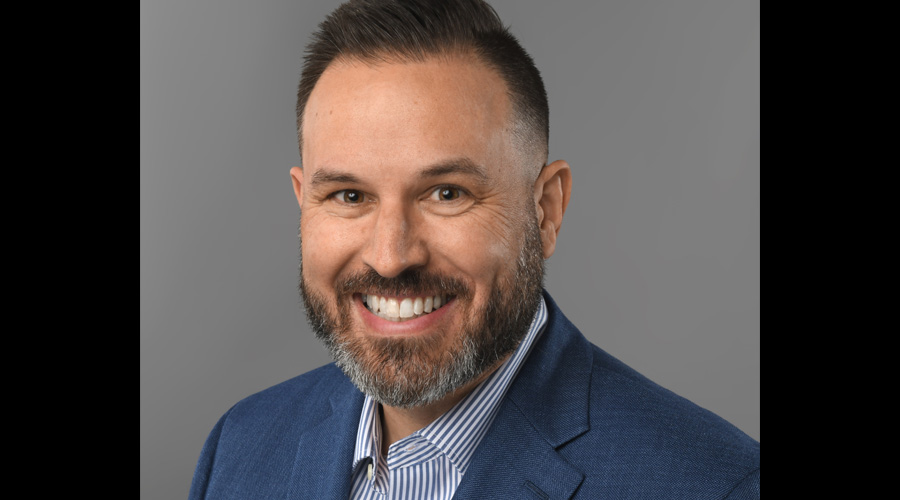Managers Discuss Personnel Management Challenges and Successes
By Dave Lubach, Associate Editor
OTHER PARTS OF THIS ARTICLEPt. 1: This Page

Shelley Cason
Facilities Operations Manager,
Leon County (Fla.)
Facilities Management
|

Paul Adjan
Facility Manager,
Glynn County Airport Commission,
Brunswick, Ga.
|

Patrick Crowley
Deputy Director,
Facilities and Engineering Division,
San Jose (Calif.)
International Airport
|
Personnel management is among the toughest responsibilities for maintenance and engineering managers with institutional and commercial facilities. Because their backgrounds tend to be technical, many managers generally are not as familiar with such tasks as hiring, training, evaluating and motivating employees. In this roundtable, three managers address the man challenges of personnel management.
What are your top personnel management challenges?
CASON: Three of our main personnel management challenges include the ability to retain and to positively motivate our up-and-coming employees with competitive compensation packages. Unfortunately, losing a competent employee can negatively affect the morale of our other employees, which can also be quite a challenge. Another challenge that we face is the loss of our committed long-term tenure employees with extensive tacit knowledge. A final challenge that we face is keeping up with the new technologies over such a diverse group of employees as found within modern-day facilities departments.
ADJAN: Time — there is never enough. Money — there are always cuts. And people — they lose morale because of the lack of time and money.
CROWLEY: Retention and compensation of employees, and attrition at the mid-manager level are my main challenges.
How much of a challenge was it for you to adjust to personnel management?
ADJAN: Not too much. As I learned my trade, I closely watched the people in charge to see how and what they did and how and what the reaction was from their subordinates. This taught me a lot of the things that never work, and I stayed away from them as I employed all of the ways things did work.
CASON: Personnel management challenges can be somewhat daunting, due to the fact that unfortunately there is only so much you can do to address the challenges. But these types of challenges offer us a great opportunity to be creative as a team and look for different ways to challenge our employees to expand their knowledge in the field or utilize their hidden talents.
CROWLEY: The transition to managing blue-collar workforce took some adjustment based on previous experience managing engineers.
What have you done to expand your skills as a personnel manager?
ADJAN: I have read books on people that did well as a manager and put into practice all that I could. I always watched what the leadership around me did and put into action all of those things as well.
CROWLEY: I've had discussions with human resource personnel, attended classes that my company hosted, and took part in
mentor guidance.
CASON: We value our employees and offer training opportunities to assist our employees in their upward mobility within the department. As an incumbent operations manager, I recently graduated with an MBA in leadership management and am currently looking to continue my education in the field of facilities management. I personally strive to learn from others and have been very fortunate to have had three excellent directors assist me in my career path. All three have been very influential in allowing me to expand and grow in my knowledge within county government.
What strategies have been most effective in helping you become a better manager?
CROWLEY: Practice active listening, offer consistent feedback on expectations, and maintain open-door access for staff.
ADJAN: Listening, listening, listening and, of course, listening. You cannot solve a problem without enough information to assess the problem. Too much will take too long to resolve an issue, but too little will only benefit one party and alienate the other. Listen to what goes on daily, and a lot of times a small issue can be handled fairly before it turns into a larger issue.
CASON: The ability to garner hands-on training from long-term-tenure employees, such as my directors, has clearly been the most effective strategy in advancing my management career path. Finding these unique employees to mentor me has been critical in my advancement because they gave me the opportunity to use my talents, be creative and work on several different types of projects that may not have actually been in my job description. This type of learning environment offered me a very safe learning atmosphere without fear of repercussions due to failure and recognizes that every decision is a learning opportunity. This safety-net component granted me the opportunity to think outside the box. Also, the ability to participate in educational, self-development training has been another very effective strategy in assisting me in becoming a better manager. Engaging in communication, and listening to what others have to offer, has truly helped me to become a better manager.
Give me an example of a successful personnel management moment you've experienced.
CROWLEY: I worked extensively with a staff member for additional training requirements in performance evaluations and provided specific classes that the company assigned to the employee to attend and meet every two weeks for progress reports. It took a significant effort for the direct supervisor and me. However, it has paid off and the employee has turned around and is now a quality member of the work team.
ADJAN: I had a guy that would spend more time figuring out how to get out of work than just doing the job. I made myself very visible wherever he was so as to almost be watching him. He finally approached me to see why I was always in the area and I calmly explained that I thought I knew why he took so long to accomplish a task, but I offered him a chance to explain his actions first. When he knew he'd been caught, I took him for lunch, and we discussed his actions, why they were seen as wrong, the amount of time spent on getting out of the job versus doing it, and we came up with a trial period of specific tasks within his job description as a test. Long story short, he became one of the most productive workers and a great mentor to the rest of the staff.
CASON: One great example happened recently and dealt with reducing our current fiscal year budget. We were directed to look at ways to reduce our overall budget. Our director brought the team together to discuss the issue, and then collectively the team recognized several opportunities to streamline some processes. This collaborative team effort resulted in eliminating two vacant positions and reorganizing the operations unit. This type of collaborative team effort provided the employees the ability to work together to resolve a major issue, and it provided them the opportunity to use their many different — and some hidden — talents within the department. I think that what happened that day made every worker in the room feel like a value-added participant on our work team and improved the employee morale greatly.
What kinds of
lessons have you learned along the way about personnel management?
CROWLEY: Consistency is mandatory. Don't quickly react. Evaluate things on a case-by-case basis, but maintain a consistent approach. Don't place personal expectations of the staff ahead of their own direction. Insist on them thinking about one-to-five year career goals.
CASON: Providing employees the opportunity to use their talents has been a very valuable asset to our facilities department. Providing flexibility and encouraging employees to be creative in accomplishing their projects within a safe learning environment, while alleviating fears, gives them a sense of ownership, and many times the employees feel more invested and dedicated in their jobs. Finally, actively listening and providing an open line of communication is vital in personnel management. Employees are individuals with individual needs, whether their needs are personal or family needs. In order to have a well-established, well-functioning and efficient team, the employees need to be recognized as individuals first. Always remembering the golden rule — treat others the way that you would want to be treated — has truly been a valuable and critical lesson. You definitely get more out of your employees when you recognize them for their contributions.
ADJAN: Listen to those around you, not only for problems or complaints but also for the great ideas the folks in the field always come up with. Praise down and complain up. Always be positive, regardless of how bad the situation seems. Be truthful and fair in all dealings.
Related Topics:














